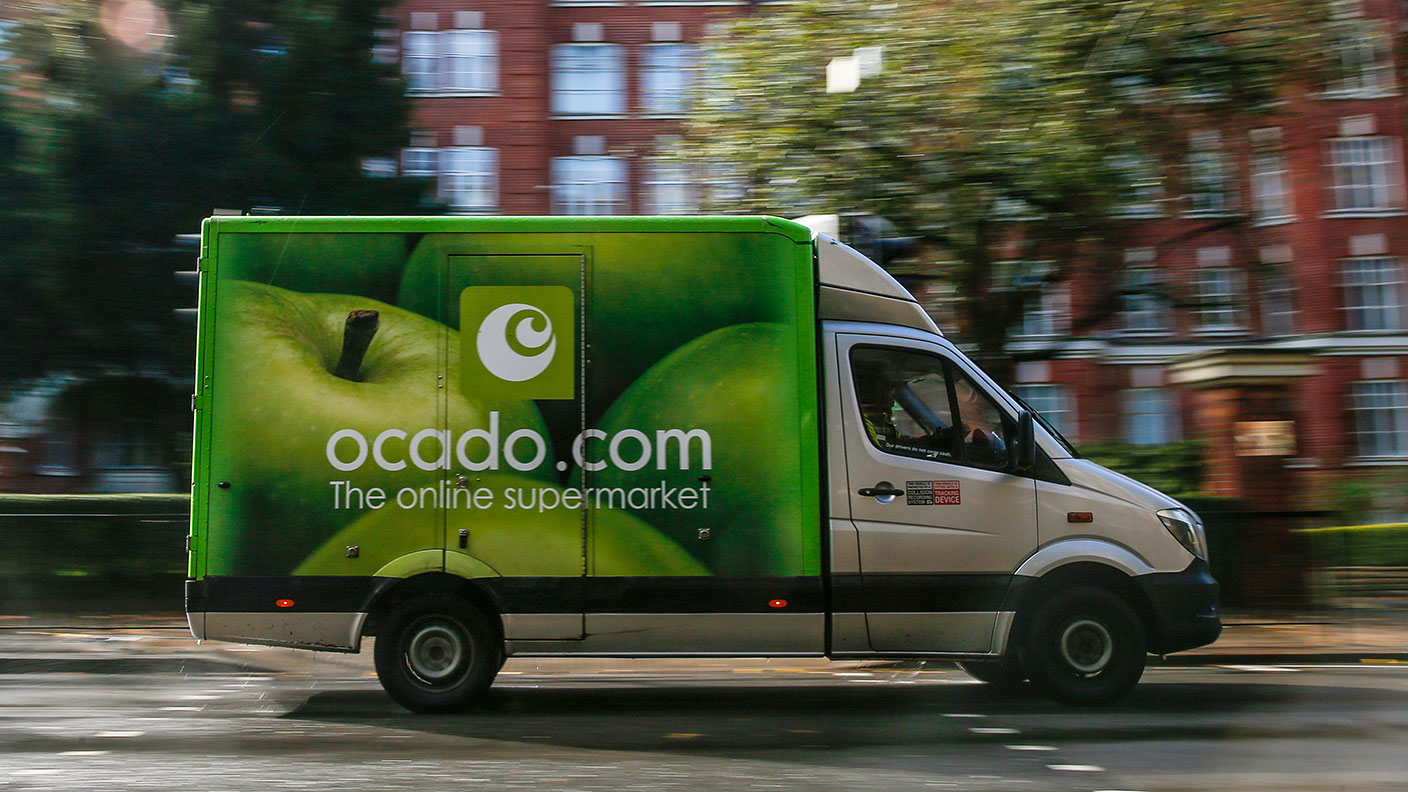Ocado: an 18-year overnight success story
No one, it seemed, believed that online supermarket Ocado would ever survive or thrive. True believer and co-founder Tim Steiner did – and he has been vindicated. Jane Lewis reports.

Get the latest financial news, insights and expert analysis from our award-winning MoneyWeek team, to help you understand what really matters when it comes to your finances.
You are now subscribed
Your newsletter sign-up was successful
Want to add more newsletters?

Twice daily
MoneyWeek
Get the latest financial news, insights and expert analysis from our award-winning MoneyWeek team, to help you understand what really matters when it comes to your finances.

Four times a week
Look After My Bills
Sign up to our free money-saving newsletter, filled with the latest news and expert advice to help you find the best tips and deals for managing your bills. Start saving today!

"Ocado begins with an o', ends with an o' and is worth zero," quipped one London-based analyst shortly after the company floated in 2010. Founded by three former Goldman traders a decade earlier, the outfit had broken new ground as Britain's first online delivery grocer.
Yet it was written off for years as "a middle-class indulgence" by cynics in the City, later equally quick to scoff at tales of its miraculous reinvention as a technology company. By the summer of 2017, notes Bloomberg, Ocado was the most shorted stock in Europe.
Vindication at last for co-founder Tim Steiner the only one of the original three still in place. In an otherwise dismal year for stockmarkets, Ocado nearly doubled its value to £5.2bn propelling itself into the FTSE 100 on the back of a couple of deals with international supermarkets. The doubters might well ask, "how the hell did that happen?", says The Times.
MoneyWeek
Subscribe to MoneyWeek today and get your first six magazine issues absolutely FREE

Sign up to Money Morning
Don't miss the latest investment and personal finances news, market analysis, plus money-saving tips with our free twice-daily newsletter
Don't miss the latest investment and personal finances news, market analysis, plus money-saving tips with our free twice-daily newsletter
"If only they'd listened to Steiner droning on" about how Ocado wasn't just "a van outfit", but actually "the owner of the wizziest food-delivery tech around" whose services as an "Amazon slayer" are now in demand globally by grocery chains taking defensive action.
Unwavering belief
Steiner, 49, "has always divided opinion", says The Sunday Times. "But his belief in his creation has never wavered." Steiner, whose 3.4% stake is worth £179m, has now taken his place among an "elite group of founders" who "have created blue-chip companies from scratch". But "if belated victory over his tormentors tastes sweet, he isn't showing it" merely observing that Ocado's triumph is "an 18-year overnight success".
Steiner spent eight years as a bond trader in London, Hong Kong and New York, "but consumer interests run in his family", says the Financial Times: his great-grandfather founded Steiner Leisure, the now Nasdaq-traded spa group; another grandfather gained royal warrants as hairdresser to Queen Mary and cosmetician to the Queen Mother.
Raised in north London, Steiner was educated at Haberdashers' Aske's school in Hertfordshire and studied economics at Manchester before landing a job with Goldman in 1992.
Lucky timing
When Steiner and two Goldman colleagues Jonathan Faiman and Jason Gissing quit to found Ocado forerunner Last Mile Solutions in 2000, "their timing was lucky", says The Sunday Times. "Amid the optimism of the first dotcom bubble", Charlie Mayfield of the John Lewis partnership negotiated a seed investment in return for a 40% stake and Ocado got its first break as the online distribution arm of the partnership's supermarket.
With hindsight, the trio later admitted they were "arrogant and nave" about the supermarket business. But as Gissing later observed, Steiner's "evangelism and self-belief" were essential when taking on powerful household names.
In recent years, Steiner has sometimes hit the headlines for the wrong reasons, says The Observer. In addition to a £116m divorce battle, he attended the notorious Presidents Club the charity forced to close last year after "deplorable" revelations about a men-only fundraising dinner where hired hostesses were allegedly groped. And questions have been asked about offshore trusts and companies.
Some in the City remain sceptical about whether Ocado can keep up the pace of its "transformative" deals, says The Sunday Times. But even Steiner's most trenchant critics give him "total and utter respect" for "single-handedly" turning a "failed" retailer into a FTSE 100 company, in the words of Shore Capital's Clive Black. As Black concludes: "If you can't be good, be lucky".
Get the latest financial news, insights and expert analysis from our award-winning MoneyWeek team, to help you understand what really matters when it comes to your finances.
Jane writes profiles for MoneyWeek and is city editor of The Week. A former British Society of Magazine Editors (BSME) editor of the year, she cut her teeth in journalism editing The Daily Telegraph’s Letters page and writing gossip for the London Evening Standard – while contributing to a kaleidoscopic range of business magazines including Personnel Today, Edge, Microscope, Computing, PC Business World, and Business & Finance.
-
 Last chance to invest in VCTs? Here's what you need to know
Last chance to invest in VCTs? Here's what you need to knowInvestors have pumped millions more into Venture Capital Trusts (VCTS) so far this tax year, but time is running out to take advantage of tax perks from them.
-
 ISA quiz: How much do you know about the tax wrapper?
ISA quiz: How much do you know about the tax wrapper?Quiz One of the most efficient ways to keep your savings or investments free from tax is by putting them in an Individual Savings Account (ISA). How much do you know about ISAs?